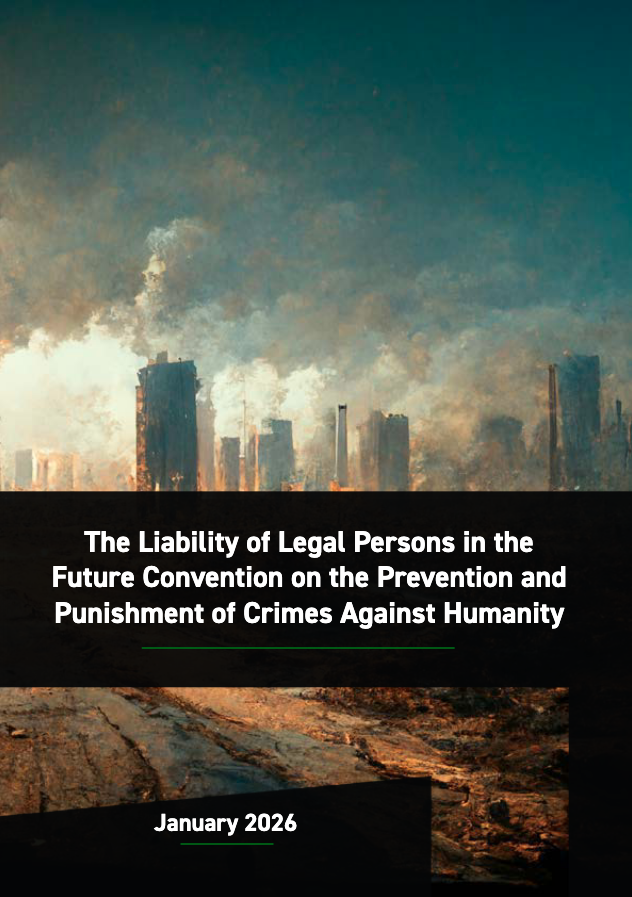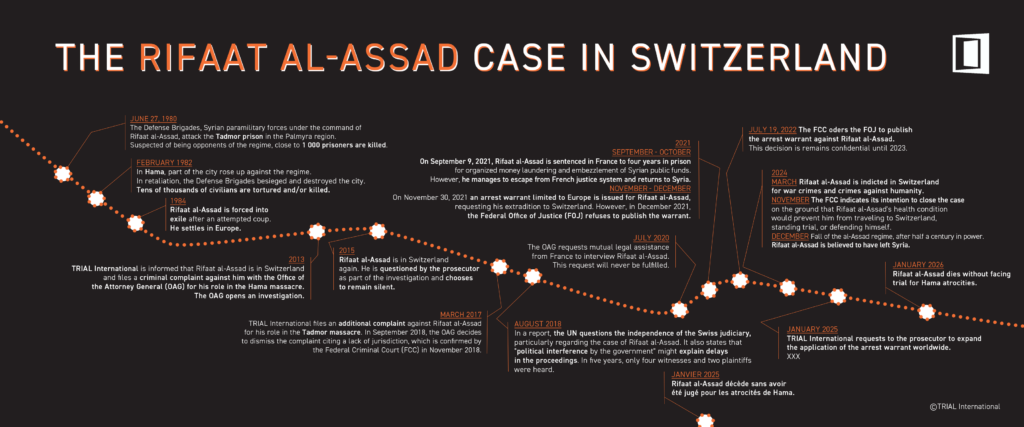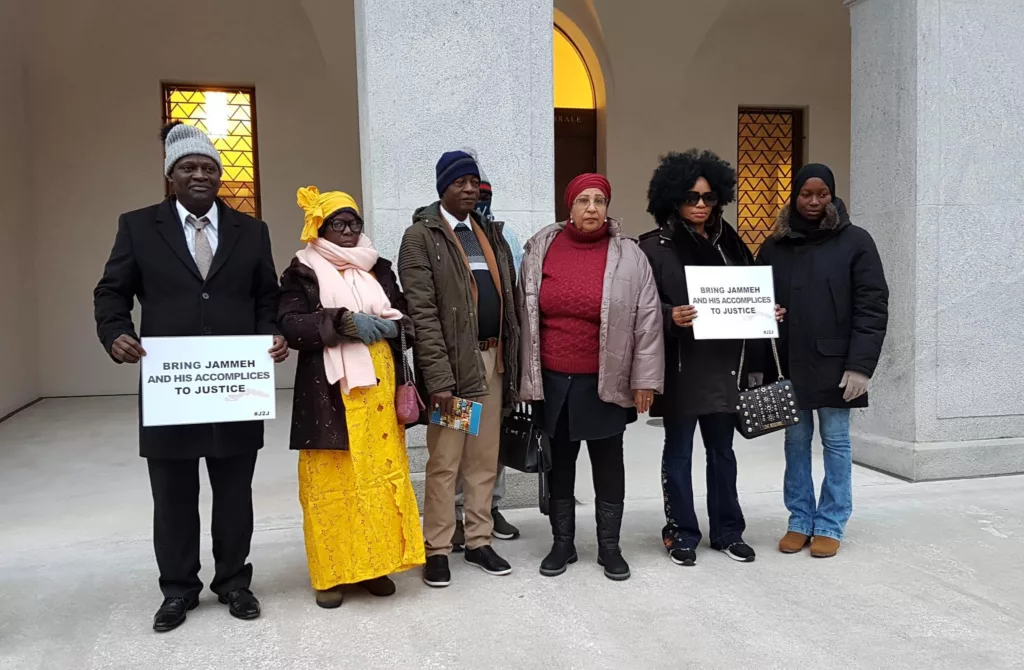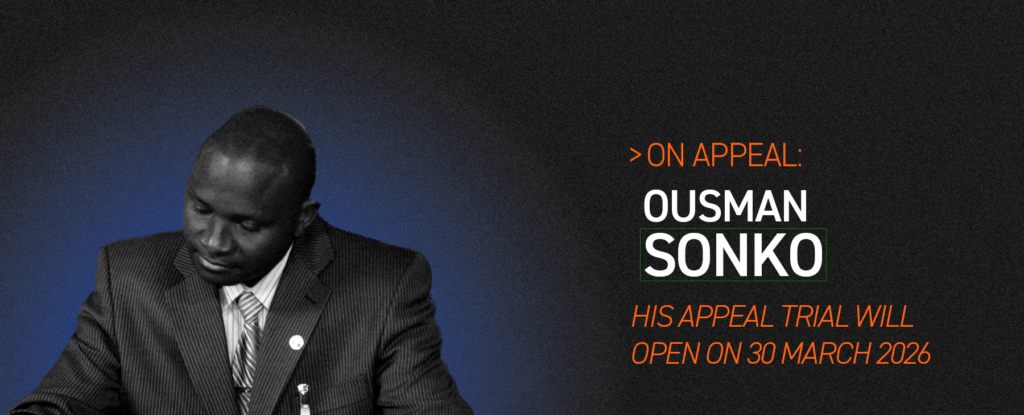A note at the centre of the argument: Summary of the proceedings of the second week of the trial of Ousman Sonko
(15-19 January 2024, Federal Criminal Court, Bellinzona, Switzerland)
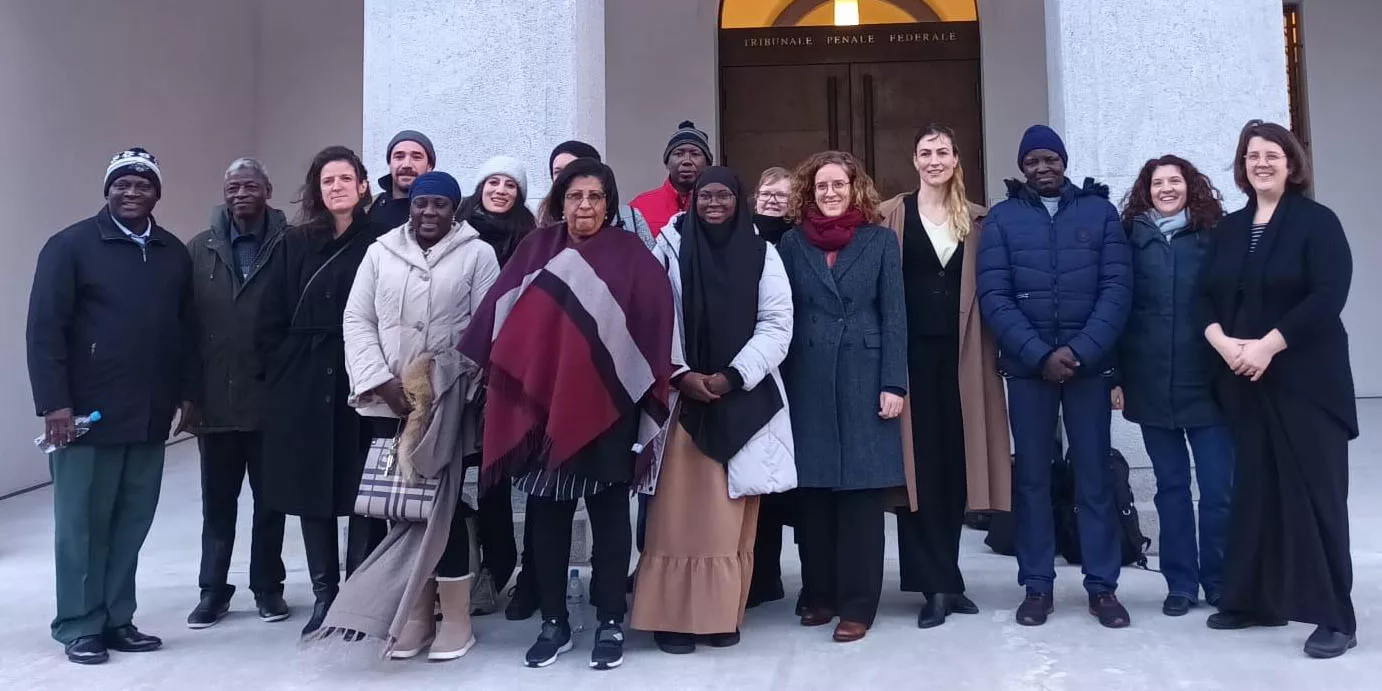
15 January 2024 – Day 6
Examination of Ousman Sonko’s responsibility over Baba Joe’s murder in 2011
Ousman Sonko is accused of having intentionally killed Baba Jobe – a former member of the National Assembly – in Banjul in October 2011, in complicity with a group of perpetrators. He contested all the charges brought against him in relation to this event.
> Ousman Sonko contested all the charges brought against him in relation to this event.
A witness, who was heard during the investigative phase by the Swiss prosecuting authorities in 2021 in The Gambia, was called to testify upon the prosecution’s request. He was a prison guard (assistant to David Colley, General Director of prisons, at Mile 2 prison) and was responsible for guarding prisoner Baba Jobe, who was hospitalized in October 2011.
He confirmed that, upon orders from his superior, he granted a group of Junglers access to Baba Jobe’s hospital room, who subsequently killed him.
The witness also stated that inmates were picked up in Mile 2 prison, mostly by Junglers, and that when they were brought back it was clear that they had been tortured.
The witness recalled that David Colley, his superior, would provide day-to-day reports to Ousman Sonko every morning over the phone, which was denied by the accused. He did not admit either to having given any order about Baba Jobe’s murder to Colley.
15-17 January 2024 – Days 6 to 8
Examination of Ousman Sonko’s responsibility over the deprivation of liberty, torture and cruel detention conditions of protesters from April 2016 onwards
Ousman Sonko is being accused, in complicity with a group of perpetrators, of having tortured several political opponents and illegally depriving them of their liberty in the context of a political demonstration organized in April 2016 in Banjul. Within this context, Ousman Sonko is in particular suspected of having tortured and then killed one of the organizers of the demonstration.
> Ousman Sonko contested all the charges brought against him in relation to the torture, the deprivation of liberty and the cruel detention conditions of protestors in April 2016.
The plaintiffs and the Prosecutor requested witnesses to testify, who had both testified before the TRRC in 2020.
During the hearing, the first witness – requested by the plaintiffs –, who was a prison guard, confirmed that he had worked in the Mile 2 jail under Jammeh’s presidency, where he was himself imprisoned later. Mile 2 was not a clean place, where air did not circulate well. The little food detainees received was making them sick. In the security wing of Mile 2, political detainees were not detained at the same place as other inmates. The witness heard that the Junglers and the NIA had access to detainees. They allegedly came during the night so that no one would know what was going on. The witness confirmed having seen acts of torture being committed in Mile 2 when he was himself detained. He added that he had never seen Ousman Sonko in prison.
The second witness – requested by the Prosecutor –, was among the protesters arrested during the demonstration that took place on 14 April 2016. He declared having seen Ousman Sonko as well as other security officials at the NIA. There, the arrestees were strongly beaten and pressured into signing pre-written statements. He was then imprisoned. The witness then detailed the acts of torture and humiliations the arrestees went through. He personally also had to endure acts of a particular cruelty.
He was then brought before a panel which included Ousman Sonko, the MA Director and the NIA Director of Operations. Before this panel, visibly injured, he was again threatened. He was then transferred to other prisons, where he was ill-treated, without medical treatment and often without access to a lawyer or his family.
On the political and human rights’ context in The Gambia, the witness explained that, under Yahya Jammeh, opposition members or journalists would either be imprisoned or forced to leave the country. The judicial power was under the influence of the President and proceedings were partial.
Procedural highlight
The filing of additional material related to the illegal execution of nine Mile 2 inmates in 2012 (Gambian newspaper articles, videos, etc.) was discussed at the resumption of the hearing. In the Prosecutor and the plaintiffs’ views, this material supports the fact that a systematic and planned policy of oppression had been set up by the Gambian authorities. The material highlights the interaction amongst various state actors – and particularly the role of Ousman Sonko – within Yahya Jammeh’s government to implement the policy. The defense argued, that the filing of the material should be rejected as the inmates’ executions at stake were lawful, hence, cannot be the demonstration of a systematic or generalised attack against the civilian population.
> The Court subsequently ruled in favor of the plaintiffs and the prosecutor by accepting to add new evidence to the casefile.
17 and 18 January 2024 – Days 8 and 9
Examination of Ousman Sonko’s responsibility over the deprivation of liberty, torture and cruel detention conditions of protesters from April 2016 onwards as crimes against humanity
Ousman Sonko is being accused, in complicity with a group of perpetrators, of having tortured several political opponents and illegally depriving them of their liberty in the context of a political demonstration organized in April 2016 in Banjul. Within this context, Ousman Sonko is in particular suspected of having tortured and then killed one of the organizers of the demonstration.
First, two plaintiffs were called to provide their statements.
Both plaintiffs who were called to testify in relation to the April 2016 events are former members of the UDP (opposition party under Jammeh), who were strongly engaged in the activities of the party from an early age.
They were arrested and subsequently tortured in April 2016 and kept in detention for several months afterwards.
The first plaintiff to testify explained being arrested in April 2016 and brought to the Police Intervention Unit headquarters (PIU HQ) along with others. She was then taken to Mile 2 prison and to the National Intelligence Agency (NIA)’s premises. She described the torture and humiliation she went through as well as detailed the squalid detention conditions. Detained political opponents were treated like animals. She still suffers from severe physical damages.
The second plaintiff to testify explained that she was arrested on 14 April 2016 and taken to the PIU’s HQ, where she was hurt and humiliated. Along with other arrestees, she was brought to Mile 2 and then to the NIA premises. There, she was blindfolded and submitted to torture. During her time in Mile 2 she didn’t have access to a doctor or a lawyer and detention conditions were very poor.
A third plaintiff, who endured similar offenses in April 2016 onwards, had been fighting for justice in the proceedings against Ousman Sonko for several years. Indeed, in June 2017, she filed a complaint against him in Switzerland for the acts of torture she endured back then. Sadly, she passed away before having been able to tell her story before the Court.
Subsequently, Ousman Sonko was called to testify on the 14 April 2016 events.
He denied having been present at the Police Intervention Unit’s headquarters or taken part in the investigation panel at the NIA. He reiterated that the Junglers had not been under his supervision.
Notes that seem to be incriminating evidence were found in his suitcase by the police in 2017. He stated that the content was only partly true, even if he admitted it was his handwriting.
Further, he stated that in April 2016 protesters were not arrested because of their political opposition but because the demonstration had taken place illegally. So, the arrests were merely a security matter.
While he recognized the bad detention conditions at the time, Ousman Sonko repeated that he had done everything in his power to improve them during his term as Minister. He was not aware of any sexual assaults and apologized for any inconvenience their detention conditions might have caused the plaintiffs. He reiterated that he was never ordered to shoot at protesters and would not have followed such an order.
Day 10: Trial suspended until Monday 22 January 2024
After the hearing of Ousman Sonko on 18 January 2024, a plaintiff was called to provide a statement on his arrest and torture in 2006. His hearing was scheduled to continue on 19 January 2024.
The defense informed the Court and the parties that it would be unable to represent his client on the following day. Because the trial cannot continue without the presence of the defense, the Court suspended the proceedings and informed the parties they would resume on Monday 22 January 2024, 08:30 (CET). As a result, the remaining plaintiffs will have to be questioned next week, therefore the Court agreed that their stay be extended.
The other plaintiffs who were supposed to leave Switzerland on 20 January 2024 – as they already testified – would not have been able to hear the accused’s further questioning next week without finding additional means to extend their stay. Nevertheless, it remains unclear whether the Court will eventually refund them, entirely or even at all.
With regards to victims’ access to justice, TRIAL International strongly believes that the plaintiffs’ attendance of Ousman Sonko’s hearing and confrontation with the facts at stake can contribute to their healing process as well as provide each and everyone of them with the closure they have been awaiting for years now.
TRIAL International reiterates that the plaintiffs should have been invited, and their costs covered, to attend the full length of the trial in the first place, as victims’ participation to these trials is of utmost importance and aligns with the principle of universal jurisdiction, which allows victims to be heard before foreign jurisdictions on the serious crimes they have suffered.
>> This summary of the second week of the proceedings of the Ousman Sonko’s trial, lists the most important points discussed during the hearings. TRIAL International does its best to summarize as accurately as possible what was said. The organization cannot be held responsible for any errors or omissions. <<

